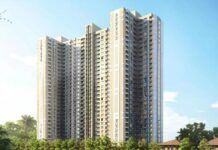New Delhi, Feb 13, 2015: Asian Development Bank (ADB) President Takehiko Nakao recently met India’s Prime Minister Narendra Modi and Finance Minister Arun Jaitley to discuss ADB’s partnership with India as the government aims to address the country’s development challenges.At his meeting with the Prime Minister, Mr. Nakao lauded India’s brighter growth prospects in the light of the government’s bid to improve the business environment and accelerate infrastructure investment. He commended efforts to introduce a goods and services tax as it would unify internal markets and support economic growth by removing tax distortions. He also highlighted the importance of recent reform measures such as the reduction of fuel subsidies, raising the foreign direct investment (FDI) ceiling in several sectors, and fast-tracking infrastructure projects by expediting clearances.
“Prime Minister Modi and his government is aiming for a good balance between fiscal consolidation by rationalizing expenditure and growth-oriented policies by expanding public investments. Better targeting of subsidy payments is essential to achieve higher and more inclusive economic growth,” President Nakao said.ADB’s latest economic forecast for India published last December projects a significant improvement from the 5.5% growth rate expected in the current fiscal year to 6.3% in the year ending 31 March, 2016. The fall in global oil prices should boost growth and educe India’s current account deficit. The government’s commitment to a strong macro-economic framework – and new initiatives to improve the investment climate such as the ‘Make in India’ campaign and a plan to build 100 smart cities – should attract strong FDI.ADB achieved record lending of $3 billion in 2014 – of which $2.2 billion was for sovereign loans and $0.8 billion to the private sector. Mr Nakao said: “ADB is planning to maintain the high lending level of $7-$9 billion during 2015-2017 to support the government’s vision of a faster, sustainable and more inclusive growth.
Among India’s most pressing challenges are addressing its infrastructure shortfall, especially in power and transport. ADB will continue to finance new and improved roads and urban infrastructure, as well as renewable energy, including the development of solar parks and transmission lines. In addition, ADB will support the development of industrial and economic corridors. ADB is working with the government on the Vizag-Chennai Industrial Corridor with a renewed focus on the manufacturing sector. ADB will also assist development of 10-20 smart cities. Recently approved technical assistance (TA) to the Government of India will further support the enabling environment for PPPs.In social sectors, ADB is supporting India’s national skills development program, initially through projects in the states of Meghalaya and Kerala to help match skills with jobs. ADB stands ready to support through lending the Swachh Bharat (Clean India) Mission, a flagship government program to improve sanitation across India.
During his two-day visit, President Nakao also delivered a keynote address at the Delhi Sustainable Development Summit entitled Solutions for Inclusive, Green, and Resilient Cities. By 2050, 3 billion people, or about 65% of all Asians, will live in cities. Regarding inclusiveness, the success of poverty reduction efforts in Asia will depend largely how cities are managed to protect the poor from economic and environmental shocks. He emphasized the importance of making cities greener through promotion of low-carbon development, and smart use of land and water. Cities like Kolkata and Mumbai are growing fast and are also highly vulnerable to climate change, notably coastal flooding as sea levels rise. Upfront investments in better urban infrastructure design can help mitigate the risk of natural hazards and climate change and can save lives.India is ADB’s largest borrower. Since 1986 when ADB started lending operations in India, ADB has approved 189 sovereign loans totaling $31.3 billion. ADB has also approved 50 non-sovereign loans, equity investments, and guarantees totaling $3.6 billion. ADB, based in Manila, is dedicated to reducing poverty in Asia and the Pacific through inclusive economic growth, environmentally sustainable growth, and regional integration. Established in 1966, it is owned by 67 members – 48 from the region.CCI Newswire




















